November 18, 2014 •
Arkansas Lawmakers Prefile Ethics Bill to Clarify Recent Changes
Lawmakers have prefiled a bill to clarify new ethics laws contained in a constitutional amendment passed by voters on November 4, 2014. The amendment prohibits lobbyist gifts and corporate contributions, but the Ethics Commission needs further legislative authority to enforce […]
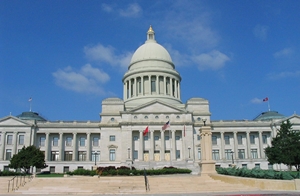 Lawmakers have prefiled a bill to clarify new ethics laws contained in a constitutional amendment passed by voters on November 4, 2014.
Lawmakers have prefiled a bill to clarify new ethics laws contained in a constitutional amendment passed by voters on November 4, 2014.
The amendment prohibits lobbyist gifts and corporate contributions, but the Ethics Commission needs further legislative authority to enforce the constitutional changes.
Democratic Rep. Warwick Sabin and Republican Sen. Jon Woods filed House Bill 1002 as a shell bill, without any specific proposals, to publicize the issue ahead of the session start date on January 12, 2015.
Photo of the Arkansas State Capitol by jglazer75 on Wikimedia Commons.
November 17, 2014 •
Pennsylvania Governor-Elect Wolf Bans Gifts to Transition Team
Gov.-elect Tom Wolf, fresh off of a victorious first campaign for public office, is already taking steps to ensure the ethical conduct of his administration. Wolf is requiring members of his transition team to sign a code of conduct including […]
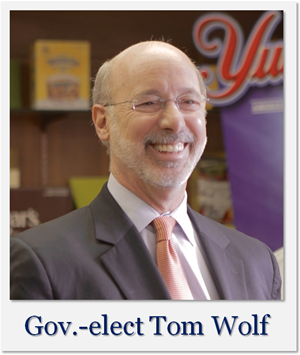 Gov.-elect Tom Wolf, fresh off of a victorious first campaign for public office, is already taking steps to ensure the ethical conduct of his administration.
Gov.-elect Tom Wolf, fresh off of a victorious first campaign for public office, is already taking steps to ensure the ethical conduct of his administration.
Wolf is requiring members of his transition team to sign a code of conduct including a ban on accepting gifts, one he plans to extend to the entire executive branch upon taking office.
The pledge also includes a requirement to disclose current and future conflicts of interest and a promise to not use their position for personal gain.
Photo of Gov.-elect Tom Wolf by Bruestle2 on Wikimedia Commons.
November 5, 2014 •
Arkansas Passes Ethics Constitutional Amendment
Voters passed a constitutional amendment on the November 4 ballot to extend term limits for state lawmakers in exchange for strict ethics laws for lobbyists and corporations. The Arkansas Elected Officials Ethics, Transparency, and Financial Reform Amendment of 2014 bans […]
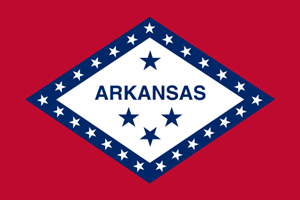 Voters passed a constitutional amendment on the November 4 ballot to extend term limits for state lawmakers in exchange for strict ethics laws for lobbyists and corporations.
Voters passed a constitutional amendment on the November 4 ballot to extend term limits for state lawmakers in exchange for strict ethics laws for lobbyists and corporations.
The Arkansas Elected Officials Ethics, Transparency, and Financial Reform Amendment of 2014 bans corporate and union contributions to political campaigns, prohibits gifts from lobbyists to legislative and executive officials, and extends term limits for legislators to at least 16 years.
The new provision allows lawmakers to serve 16 years in the same office, or even longer for senators winning special two-year terms after each decennial census and redistricting process.
The amendment is effective today, November 5, 2014.
October 27, 2014 •
Canada Commissioner of Lobbying Announces Proposed Changes
Commissioner of Lobbying Karen Shepherd has drafted a revised Code of Conduct and invited written submissions on the proposed revisions. The changes focus on the relationship between lobbyists and public officials, while removing rules relating to the relationship between lobbyists […]
 Commissioner of Lobbying Karen Shepherd has drafted a revised Code of Conduct and invited written submissions on the proposed revisions. The changes focus on the relationship between lobbyists and public officials, while removing rules relating to the relationship between lobbyists and clients.
Commissioner of Lobbying Karen Shepherd has drafted a revised Code of Conduct and invited written submissions on the proposed revisions. The changes focus on the relationship between lobbyists and public officials, while removing rules relating to the relationship between lobbyists and clients.
New rules would prohibit a lobbyist from lobbying a public official if the lobbyist has campaigned for or has business interests with the public official. New gift regulations would hold a lobbyist responsible for giving a gift the public official is not allowed to accept.
Once Shepherd finalizes the revisions, they will be referred to the House of Commons Standing Committee on Access to Information, Privacy, and Ethics, before being published in the Canada Gazette.
October 23, 2014 •
MSRB to Create Gift Limits for Municipal Advisors
The Municipal Securities Rulemaking Board (MSRB) is seeking to create a rule limiting gifts to $100 for municipal advisors giving gifts to employees of entities engaged in municipal securities activities. The new rules for municipal advisors also would prohibit receiving […]
 The Municipal Securities Rulemaking Board (MSRB) is seeking to create a rule limiting gifts to $100 for municipal advisors giving gifts to employees of entities engaged in municipal securities activities. The new rules for municipal advisors also would prohibit receiving reimbursement of entertainment expenses from the proceeds of an offering of municipal securities.
The Municipal Securities Rulemaking Board (MSRB) is seeking to create a rule limiting gifts to $100 for municipal advisors giving gifts to employees of entities engaged in municipal securities activities. The new rules for municipal advisors also would prohibit receiving reimbursement of entertainment expenses from the proceeds of an offering of municipal securities.
In a press release, MSRB Executive Director Lynnette Kelly said, “Restrictions on excessive gift-giving by municipal finance professionals are critical to ensuring that important state and local financing decisions are based on merit.” Comments on the new rules are being accepted through December 8, 2014.
October 14, 2014 •
California FPPC Announces Proposed Amendments
The Fair Political Practices Commission (FPPC) has given notice of proposed amendments to regulations in Title 2, Division 6 of the California Code of Regulations. The FPPC will make adjustments to the gift and campaign contribution limits to reflect changes […]
 The Fair Political Practices Commission (FPPC) has given notice of proposed amendments to regulations in Title 2, Division 6 of the California Code of Regulations. The FPPC will make adjustments to the gift and campaign contribution limits to reflect changes in the consumer price index.
The Fair Political Practices Commission (FPPC) has given notice of proposed amendments to regulations in Title 2, Division 6 of the California Code of Regulations. The FPPC will make adjustments to the gift and campaign contribution limits to reflect changes in the consumer price index.
In order to provide the adjustment in time for the new calendar year, the November index is used to make the final calculation. The proposed amendments make adjustments for the period from January 1, 2015, through December 31, 2016.
The FPPC will consider the proposed regulations at a public hearing on or after November 20, 2014. The proposed amendments are available here.
October 13, 2014 •
Arkansas Ethics Ballot Measure Offers Tradeoff
A proposed constitutional amendment on the November 4, 2014, ballot will determine whether voters are willing to extend term limits for state lawmakers in exchange for strict ethics laws for lobbyists and corporations. Issue 3 will ban corporate and union […]
 A proposed constitutional amendment on the November 4, 2014, ballot will determine whether voters are willing to extend term limits for state lawmakers in exchange for strict ethics laws for lobbyists and corporations. Issue 3 will ban corporate and union gifts to political campaigns, ban lobbyist gifts to legislative and executive officials, and extend term limits for legislators to at least 16 years.
A proposed constitutional amendment on the November 4, 2014, ballot will determine whether voters are willing to extend term limits for state lawmakers in exchange for strict ethics laws for lobbyists and corporations. Issue 3 will ban corporate and union gifts to political campaigns, ban lobbyist gifts to legislative and executive officials, and extend term limits for legislators to at least 16 years.
Under the current state constitution, lawmakers typically serve no more than six years in the House and eight years in the Senate. The ballot measure would allow lawmakers to serve 16 years in the same office, or even longer for senators winning special two-year terms after each decennial census and redistricting process.
Adding term limits to the bill helped the ethics package pass the Legislature, but has decreased the popularity of the ballot measure in pre-election polls.
October 1, 2014 •
Georgia Ethics Commissioners Discuss Path Forward
The state ethics commission met September 30, 2014, for the first public meeting following the firing of former Executive Secretary Holly LaBerge. The commission closed 14 complaints against officials and candidates, approved three new advisory opinions, and discussed the agency’s […]
 The state ethics commission met September 30, 2014, for the first public meeting following the firing of former Executive Secretary Holly LaBerge. The commission closed 14 complaints against officials and candidates, approved three new advisory opinions, and discussed the agency’s future.
The state ethics commission met September 30, 2014, for the first public meeting following the firing of former Executive Secretary Holly LaBerge. The commission closed 14 complaints against officials and candidates, approved three new advisory opinions, and discussed the agency’s future.
New staff attorneys Robert Lane and Bethany Whetzel have identified nearly 200 open ethics cases needing processed.
The commission will continue to consider recently drafted amendments to campaign and lobbying rules with the hope of passing the amendments by the end of the year. The amendments will clarify campaign reporting thresholds, permit gift splitting by lobbyists, and require reporting of gifts to family members of officials.
September 30, 2014 •
California Governor Vetoes Ethics Bills
Gov. Jerry Brown has vetoed three ethics bills, including one to reduce the value of gifts lawmakers and officials may accept. SB 1443 would have prohibited all gifts from lobbyists and reduced the annual value of gifts from non-lobbyists to […]
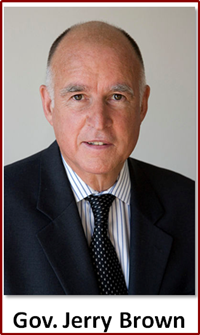 Gov. Jerry Brown has vetoed three ethics bills, including one to reduce the value of gifts lawmakers and officials may accept. SB 1443 would have prohibited all gifts from lobbyists and reduced the annual value of gifts from non-lobbyists to $200 per single source. The bill would have also prohibited officials from accepting tickets to concerts, golf passes, and gift cards.
Gov. Jerry Brown has vetoed three ethics bills, including one to reduce the value of gifts lawmakers and officials may accept. SB 1443 would have prohibited all gifts from lobbyists and reduced the annual value of gifts from non-lobbyists to $200 per single source. The bill would have also prohibited officials from accepting tickets to concerts, golf passes, and gift cards.
Brown also vetoed SB 1442 and SB 831. The bills would have required more frequent campaign disclosures and forced interest groups to offer more information on sponsored trips for lawmakers.
Brown did sign SB 1441 to ban fundraisers at lobbyists’ homes. Effective January 1, 2015, the definition of “contribution” will include the value of lobbyists’ homes if used for a fundraising event.
September 25, 2014 •
Bipartisan Panel to Review Virginia Ethics Laws
Gov. Terry McAuliffe announced the appointment of a bipartisan panel to review state campaign finance, gift, and public disclosure laws. The panel is co-chaired by former Virginia Lt. Gov. Bill Bolling and former U.S. Rep. Rick Boucher, who represented a […]
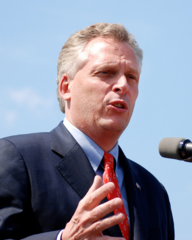 Gov. Terry McAuliffe announced the appointment of a bipartisan panel to review state campaign finance, gift, and public disclosure laws. The panel is co-chaired by former Virginia Lt. Gov. Bill Bolling and former U.S. Rep. Rick Boucher, who represented a district in southwestern Virginia.
Gov. Terry McAuliffe announced the appointment of a bipartisan panel to review state campaign finance, gift, and public disclosure laws. The panel is co-chaired by former Virginia Lt. Gov. Bill Bolling and former U.S. Rep. Rick Boucher, who represented a district in southwestern Virginia.
The governor’s announcement comes just weeks after former Gov. Bob McDonnell was convicted of corruption charges for accepting close to $200,000 of gifts in exchange for public acts.
Other topics on the table include merit selection of judges and redrawing of legislative district lines.
Gov. McAuliffe has asked the panel for a report by December 1, giving the General Assembly time to take action in 2015.
Photo of Gov. Terry McAuliffe courtesy of Kate Wellington in Wikimedia Commons.
September 12, 2014 •
Tougher Gift Limits Proposed for Arlington County
Arlington County Board member John Vihstadt is calling for tougher gift restrictions for county employees and officials. In the wake of former Virginia governor Bob McDonnell and his wife being convicted on corruption charges, Vihstadt hopes to place a $100 […]
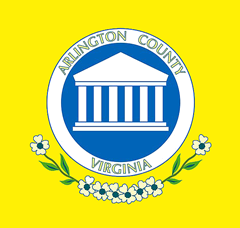 Arlington County Board member John Vihstadt is calling for tougher gift restrictions for county employees and officials. In the wake of former Virginia governor Bob McDonnell and his wife being convicted on corruption charges, Vihstadt hopes to place a $100 yearly limit on gifts from any source.
Arlington County Board member John Vihstadt is calling for tougher gift restrictions for county employees and officials. In the wake of former Virginia governor Bob McDonnell and his wife being convicted on corruption charges, Vihstadt hopes to place a $100 yearly limit on gifts from any source.
The current Code of Ethics states officials should ensure gifts are not received in exchange for official acts and officials may not accept gifts from individuals with whom the official does business. Vihstadt, running for reelection, argues the current code only described principles of conduct rather than definite rules preventing unethical influence on public officials.
September 9, 2014 •
Ask the Experts – Disclosure Requirements for Permissible Expenditures
Q. I provided a state legislator with a permissible gift. I will be sure to include it on my next report. Is there anything else I need to know regarding proper disclosure of this expenditure. A. There are sometimes additional […]
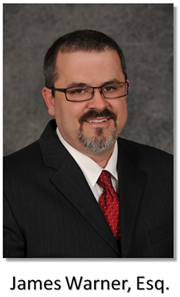 Q. I provided a state legislator with a permissible gift. I will be sure to include it on my next report. Is there anything else I need to know regarding proper disclosure of this expenditure.
Q. I provided a state legislator with a permissible gift. I will be sure to include it on my next report. Is there anything else I need to know regarding proper disclosure of this expenditure.
A. There are sometimes additional disclosure requirements related to an expenditure on a covered state official or employee. You should be sure to consider two possibilities: a notification to the official or a supplemental report in addition to your routine lobbying report.
A number of states have a notification requirement if you are going to list the name of a covered public official on your lobbying report. For example, Illinois actually requires two notifications. You must provide the official with a contemporaneous notification at the time of the expenditure, and a post- notification is required within 30 days after the report has been filed. In other jurisdictions, the notification is related to whether you must itemize the expenditure or list the official’s name on your report. In Arkansas, you must list the state official’s name if payment for food (including beverages), lodging, or travel is in excess of $40. Once the official is named on your report, you must provide him or her with a notification of this at least seven working days prior to the filing of your report. Pennsylvania imposes a yearly aggregate threshold on the listing of an official on the principal’s lobbying report and corresponding required notification. This threshold is $250 per calendar year for gifts and $650 per calendar year for transportation, lodging, and/or hospitality (which includes food and beverage). Please keep in mind that notifications are not filed with the state, but sent to the official named on your report.
Some jurisdictions require an additional report to be filed with the state when making certain permissible expenditures. For example, if you invite all members of a Maryland legislative unit to a meal or reception, you must extend a written invitation to all members of the legislative unit and register the meal or reception with the Maryland Department of Legislative Services at least five days before the date of the meal or reception. You must then report the details of the meal or reception to the Maryland Ethics Commission within 14 days after the date of the meal or reception. In Indiana, you must file a report within 15 days if you make a gift or gifts to a legislative person if the value of the gift or gifts equals $50 or more in one day or together totals more than $250 in a reporting year.
Proper disclosure of a permissible expenditure can include additional steps. Be sure to check with your jurisdiction’s ethics agency to ensure all disclosure requirements are met.
You can directly submit questions for this feature, and we will select those most appropriate and answer them here. Send your questions to: marketing@stateandfed.com.
(We are always available to answer questions from clients that are specific to your needs, and we encourage you to continue to call or e-mail us with questions about your particular company or organization. As always, we will confidentially and directly provide answers or information you need.) Our replies to your questions are not legal advice. Instead, these replies represent our analysis of laws, rules, and regulations.
September 9, 2014 •
Georgia Commission Prepares to Amend Rules
The state ethics commission is preparing to amend rules regarding campaign finance and lobbyist reporting. The campaign finance changes include allowing the commission to raise or lower campaign contribution limits at the end of four-year election cycles rather than every […]
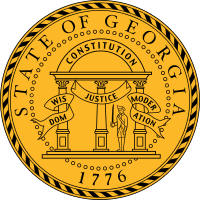 The state ethics commission is preparing to amend rules regarding campaign finance and lobbyist reporting. The campaign finance changes include allowing the commission to raise or lower campaign contribution limits at the end of four-year election cycles rather than every calendar year. The rules would also clarify only contributions to candidates can trigger the $25,000 annual registration and reporting threshold for individuals or entities making contributions.
The state ethics commission is preparing to amend rules regarding campaign finance and lobbyist reporting. The campaign finance changes include allowing the commission to raise or lower campaign contribution limits at the end of four-year election cycles rather than every calendar year. The rules would also clarify only contributions to candidates can trigger the $25,000 annual registration and reporting threshold for individuals or entities making contributions.
Lobbying amendments would require reporting for gifts to family of officials and permit gift splitting by multiple lobbyists so long as a single lobbyist does not exceed the $75 limits.
A public hearing on the proposed changes is scheduled for September 30, 2014.
August 25, 2014 •
California Bill to Prohibit Lobbyist Gifts Back to Senate
The Senate is considering minor amendments to a bill passed by both chambers to further restrict gifts to lawmakers. Senate Bill 1443 prohibits all gifts from lobbyists and reduces the value of gifts state officials can receive from a non-lobbyist […]
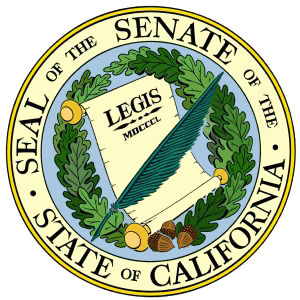 The Senate is considering minor amendments to a bill passed by both chambers to further restrict gifts to lawmakers. Senate Bill 1443 prohibits all gifts from lobbyists and reduces the value of gifts state officials can receive from a non-lobbyist source to $200 per calendar year.
The Senate is considering minor amendments to a bill passed by both chambers to further restrict gifts to lawmakers. Senate Bill 1443 prohibits all gifts from lobbyists and reduces the value of gifts state officials can receive from a non-lobbyist source to $200 per calendar year.
Currently, lobbyists may provide gifts of $10 per calendar month and officials can receive $440 from a non-lobbyist source per calendar year. The bill also prohibits giving tickets to most entertainment events, golfing green fees, and spa treatments.
State and Federal Communications, Inc. provides research and consulting services for government relations professionals on lobbying laws, procurement lobbying laws, political contribution laws in the United States and Canada. Learn more by visiting stateandfed.com.

